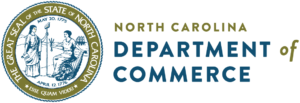Efforts to Improve Literacy Rates in Clarke County
Georgia faces significant challenges in literacy, with concerning statistics spotlighted in recent assessments. According to Dr. Robbie Hooker, Superintendent of Clarke County School District, the 2022 data reveals a “grim picture” for literacy rates across the state. Findings from the National Assessment of Educational Progress indicate that just 32% of Georgia’s 4th graders are proficient in reading.
Exploring further, the Georgia Milestones Reading Status presents a slightly different perspective. It shows that 56% of 4th graders statewide are proficient, but only 42% of students in Clarke County reach this proficiency level.
A video released on December 13th by Clarke County School District details their strategies to enhance literacy rates locally. In the video, Dr. Hooker emphasizes the critical role of reading proficiency by 4th grade, stating, “Students’ proficiency in reading at [Grade 4] can significantly impact their likelihood of graduating high school. Until now, the promise of literacy for all has not been realized.”
Dr. Jennifer Scott, Deputy Superintendent of Academic and Student Supports, introduced a significant legislative development aimed at reforming literacy education. House Bill 538, sponsored by Representative Bethany Ballard (R-Warner-Robins), was enacted in 2023, establishing the Georgia Early Literacy Act. This law mandates that schools provide comprehensive literacy resources for kindergarten through third grade, train teachers in the “science of reading,” conduct universal screenings for learning disorders, and offer tailored instruction for students with reading difficulties.
In the video, CCSD notes that Georgia schools must comply with the Georgia Early Literacy Act by 2025. Jennifer Hutcherson, a K-3 literacy coach at Bettye Henderson Holston Elementary School, shares that CCSD initiated updates to its literacy programs in 2023.
The district highlights its dedication to these literacy improvements not merely from a compliance standpoint but as a core mission. Dr. Scott states: “As a district we are committed to staying abreast of these developments and integrating them in our instructional practices to ensure that every student receives the support they need to become proficient readers and lifelong learners through collaboration with educators, families and community partners.”





